When it comes to choosing footwear, one of the most important decisions we have to make is whether to opt for real leather or synthetic leather shoes. Both options have their own unique qualities, benefits, and drawbacks. In this article, we will delve into the world of leather and synthetic leather shoes, examining their manufacturing processes, durability, comfort, and environmental impact, among other factors. By the end, you will have a clear understanding of the key differences between these two materials, enabling you to make an informed decision on which type of shoe best suits your needs. Manufacturing Process: Leather Shoes: Leather shoes are made from animal hide, primarily sourced from cattle. The raw hides are first cleaned and treated with chemicals to remove any impurities. Next, the hide is soaked in a mixture of water and lime to remove hair and fat. This process is known as tanning. Following that, the hide is treated with tannins which helps to preserve and strengthen the material.

.
 Then, the leather is colored, cut, and stitched into the desired shoe shape. Synthetic Leather Shoes: Synthetic leather, also known as faux leather or vegan leather, is a man-made material. It is typically composed of a fabric base, such as polyester, polyurethane, or nylon, which is coated with a layer of plastic, usually polyvinyl chloride (PVC) or polyurethane (PU). The fabric base provides durability and the plastic coating simulates the appearance and texture of real leather. Durability: Leather Shoes: One of the primary advantages of leather shoes is their exceptional durability. Genuine leather is a natural material known for its longevity. High-quality leather shoes, if properly cared for, can last for several years. The material is resistant to tearing and is able to withstand constant use without losing its structural integrity. Synthetic Leather Shoes: Synthetic leather shoes are also known for their durability. Although they may not have the same lifespan as genuine leather, they are still able to withstand regular wear and tear. However, it is worth noting that the durability of synthetic leather can vary depending on the quality of the materials used in its production. Comfort: Leather Shoes: Leather shoes have a reputation for being incredibly comfortable.
Then, the leather is colored, cut, and stitched into the desired shoe shape. Synthetic Leather Shoes: Synthetic leather, also known as faux leather or vegan leather, is a man-made material. It is typically composed of a fabric base, such as polyester, polyurethane, or nylon, which is coated with a layer of plastic, usually polyvinyl chloride (PVC) or polyurethane (PU). The fabric base provides durability and the plastic coating simulates the appearance and texture of real leather. Durability: Leather Shoes: One of the primary advantages of leather shoes is their exceptional durability. Genuine leather is a natural material known for its longevity. High-quality leather shoes, if properly cared for, can last for several years. The material is resistant to tearing and is able to withstand constant use without losing its structural integrity. Synthetic Leather Shoes: Synthetic leather shoes are also known for their durability. Although they may not have the same lifespan as genuine leather, they are still able to withstand regular wear and tear. However, it is worth noting that the durability of synthetic leather can vary depending on the quality of the materials used in its production. Comfort: Leather Shoes: Leather shoes have a reputation for being incredibly comfortable.
..
 The material is soft, pliable, and molds to the shape of the foot, providing a custom fit. Additionally, leather is breathable, allowing air to circulate within the shoe, which helps to prevent excessive sweating and odor buildup. Synthetic Leather Shoes: Synthetic leather shoes can vary in terms of comfort. Lower quality synthetic leather shoes may lack breathability, leading to discomfort during prolonged wear. However, higher quality synthetic materials have been developed to mimic the comfort and pliability of real leather, providing a more comfortable experience. Aesthetic Appeal: Leather Shoes: Leather shoes are often preferred for their natural beauty and timeless appeal. The unique grain pattern and texture of genuine leather give shoes a luxurious and sophisticated look. Furthermore, leather has a natural sheen that increases with wear, adding to its overall aesthetic charm. Synthetic Leather Shoes: Synthetic leather shoes have come a long way in terms of replicating the appearance of real leather. Manufacturers have developed techniques to mimic the grain pattern and texture of genuine leather. However, some synthetic materials may lack the depth and richness of real leather. Environmental Impact: Leather Shoes: The production of leather shoes has both positive and negative environmental impacts. On the positive side, leather is a natural material and its manufacturing process is relatively low in carbon emissions. Additionally, leather is biodegradable, meaning it will break down naturally over time. However, the negative aspect lies in the environmental impact of cattle farming, including deforestation, water pollution, and greenhouse gas emissions.
The material is soft, pliable, and molds to the shape of the foot, providing a custom fit. Additionally, leather is breathable, allowing air to circulate within the shoe, which helps to prevent excessive sweating and odor buildup. Synthetic Leather Shoes: Synthetic leather shoes can vary in terms of comfort. Lower quality synthetic leather shoes may lack breathability, leading to discomfort during prolonged wear. However, higher quality synthetic materials have been developed to mimic the comfort and pliability of real leather, providing a more comfortable experience. Aesthetic Appeal: Leather Shoes: Leather shoes are often preferred for their natural beauty and timeless appeal. The unique grain pattern and texture of genuine leather give shoes a luxurious and sophisticated look. Furthermore, leather has a natural sheen that increases with wear, adding to its overall aesthetic charm. Synthetic Leather Shoes: Synthetic leather shoes have come a long way in terms of replicating the appearance of real leather. Manufacturers have developed techniques to mimic the grain pattern and texture of genuine leather. However, some synthetic materials may lack the depth and richness of real leather. Environmental Impact: Leather Shoes: The production of leather shoes has both positive and negative environmental impacts. On the positive side, leather is a natural material and its manufacturing process is relatively low in carbon emissions. Additionally, leather is biodegradable, meaning it will break down naturally over time. However, the negative aspect lies in the environmental impact of cattle farming, including deforestation, water pollution, and greenhouse gas emissions.
…
 Synthetic Leather Shoes: Synthetic leather shoes have gained popularity due to their perceived environmental benefits. The manufacturing process of synthetic leather requires less water and land compared to cattle farming for leather production. Additionally, synthetic leather is vegan-friendly and does not rely on animal by-products. However, the production of synthetic materials involves the use of chemicals, some of which can be harmful to the environment, and they are not biodegradable. Price: Leather Shoes: Genuine leather shoes tend to be more expensive than their synthetic counterparts. The cost of the raw material, coupled with the skill required to manipulate it, results in higher production costs. Synthetic Leather Shoes: Synthetic leather shoes are generally more affordable compared to genuine leather shoes. The materials used in their production are more readily available and less expensive, making them more budget-friendly. Conclusion: Choosing between leather and synthetic leather shoes ultimately comes down to personal preference, lifestyle, and values. Leather shoes are prized for their durability, comfort, and timeless appeal, while synthetic leather shoes offer affordability, wide availability of styles, and an eco-friendly alternative. Both materials have their own distinct advantages and disadvantages, and it is crucial to consider all the factors discussed in this article before making your final decision.
Synthetic Leather Shoes: Synthetic leather shoes have gained popularity due to their perceived environmental benefits. The manufacturing process of synthetic leather requires less water and land compared to cattle farming for leather production. Additionally, synthetic leather is vegan-friendly and does not rely on animal by-products. However, the production of synthetic materials involves the use of chemicals, some of which can be harmful to the environment, and they are not biodegradable. Price: Leather Shoes: Genuine leather shoes tend to be more expensive than their synthetic counterparts. The cost of the raw material, coupled with the skill required to manipulate it, results in higher production costs. Synthetic Leather Shoes: Synthetic leather shoes are generally more affordable compared to genuine leather shoes. The materials used in their production are more readily available and less expensive, making them more budget-friendly. Conclusion: Choosing between leather and synthetic leather shoes ultimately comes down to personal preference, lifestyle, and values. Leather shoes are prized for their durability, comfort, and timeless appeal, while synthetic leather shoes offer affordability, wide availability of styles, and an eco-friendly alternative. Both materials have their own distinct advantages and disadvantages, and it is crucial to consider all the factors discussed in this article before making your final decision.
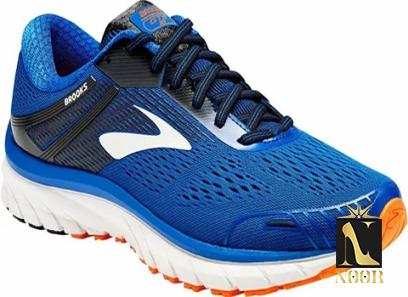
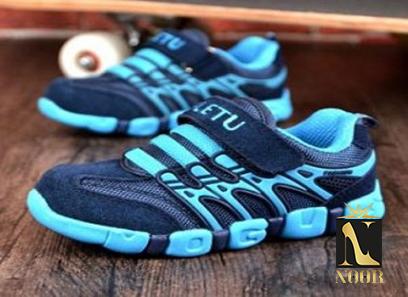



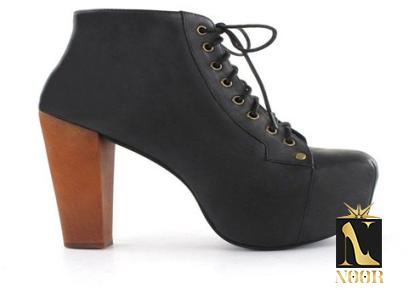
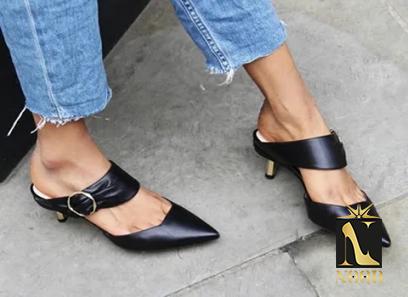
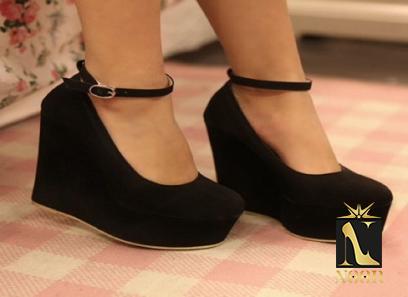
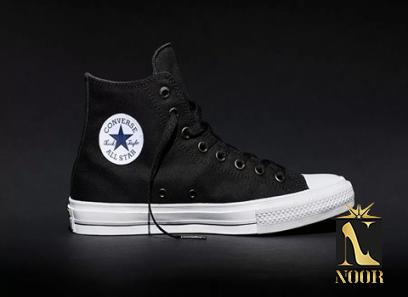
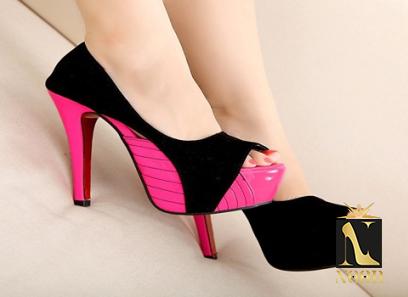
Your comment submitted.